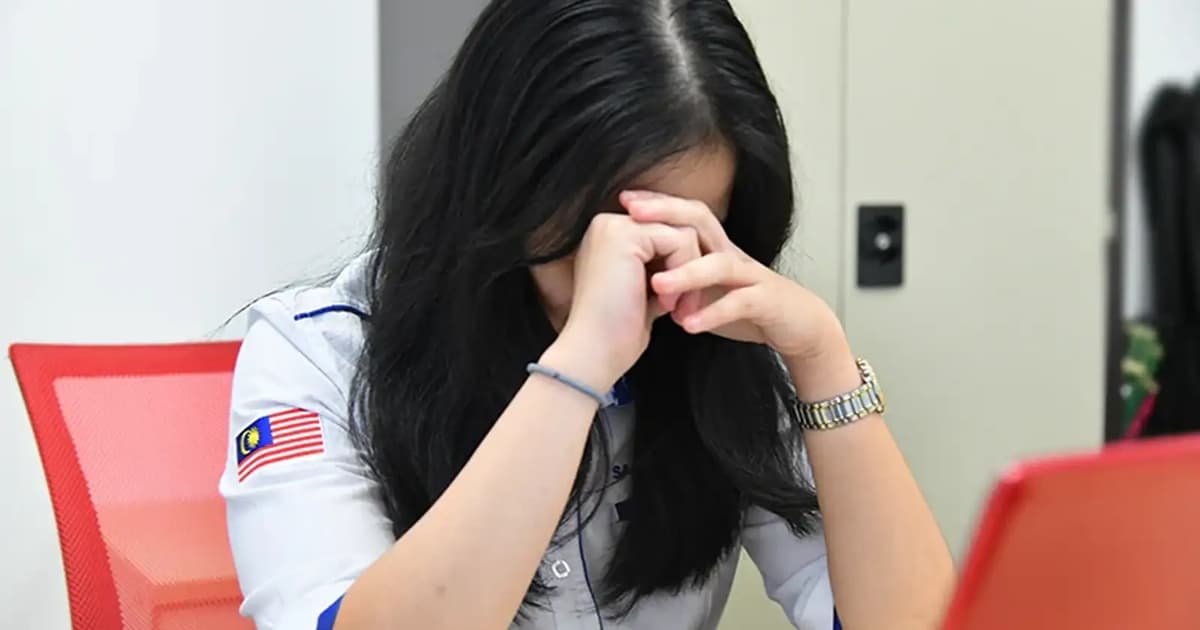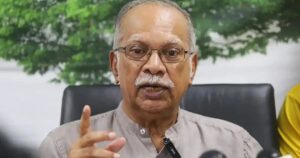
Concerns over the mental health of Malaysians are mounting, as stress, anxiety and depression become increasingly common.
According to the National Health and Morbidity Survey 2023, about 4.6% of Malaysians aged 16 and above experience depression — doubling from 2.3% in 2019.
While treatment is vital, early prevention plays a pivotal role — underscoring the need to identify signs of distress before they escalate.
If intervention comes early, emotional challenges can be managed before they harden into illness. Yet stigma, shame and silence continue to stop many from reaching out until it is too late.
Awak OK Tak?
Public awareness campaigns have therefore become a key strategy to normalise conversations around mental health — most recently through ‘Awak OK Tak?’, an awareness programme launched by the women, family and community development ministry.
Minister Nancy Shukri said the idea emerged after her ministry received a stream of cases involving people struggling with depression and emotional breakdowns.
“We wanted to promote awareness so people reflect on their emotional well-being. When someone asks ‘Awak OK tak?’, it makes you stop and think — maybe I need to talk to someone,” she told FMT.
The phrase is now being positioned as a national check-in, a simple gesture that can open the door to empathy and early help.
Beyond awareness
Behind the slogan is Talian Kasih 15999, a 24-hour hotline offering counselling, emotional support and referrals for welfare aid, shelter and legal assistance.
Nancy said the aim is to reach those who may not even realise they need help.
According to her ministry’s data, calls to the helpline cover a wide spectrum: domestic violence and family disputes, child abuse and emotional neglect, elder abandonment and loneliness, financial stress and welfare assistance queries, and mental-health struggles.
“Sometimes people think no one cares, or that they’re alone. But when someone asks ‘Awak OK tak?’, it reminds them that help is there,” the minister said.
The campaign also links to community-based initiatives like Skuad WAJA, seeking to empower women facing domestic or financial stress; KasihNita, which helps single mothers pursue child support and legal aid; and Pusat Sokongan Sosial Setempat, offering psychological counselling and guidance through mobile and fixed centres.
Together, these programmes extend care beyond awareness — offering practical, preventive support.
Breaking stigma
Yet, as with many well-intentioned initiatives, Nancy acknowledges that stigma continues to be a major barrier.
“Sometimes, people don’t want to be seen as having a problem. That’s why we use this campaign — to show you’re not alone, and that our services are confidential,” she said.
Through its “whole-of-community” approach, ‘Awak OK Tak?’ encourages Malaysians to look out for one another — family, friends, even neighbours.
“We want a caring society, one that notices when someone seems down and asks, ‘Are you okay?’”
Nancy said calls to Talian Kasih jumped to 59,065 in 2024 — up from 52,801 the year before — with almost 10,000 calls directed to counsellors for counselling sessions. Far from a red flag, Nancy said the increase shows more people are reaching out instead of staying silent.
“An increase doesn’t mean more problems. It shows people are starting to use the services available,” she said.
For the ministry, that’s proof the message is resonating: Malaysians are beginning to seek help earlier, before small problems become severe.
“Sometimes the person you ask might really be waiting for someone to care. We want ‘Awak OK tak?’ to become a normal question — one that brings people together,” she said.
By encouraging empathy and early intervention, Malaysia is taking a crucial step towards a future where mental health care begins not in crisis, but in conversation.






